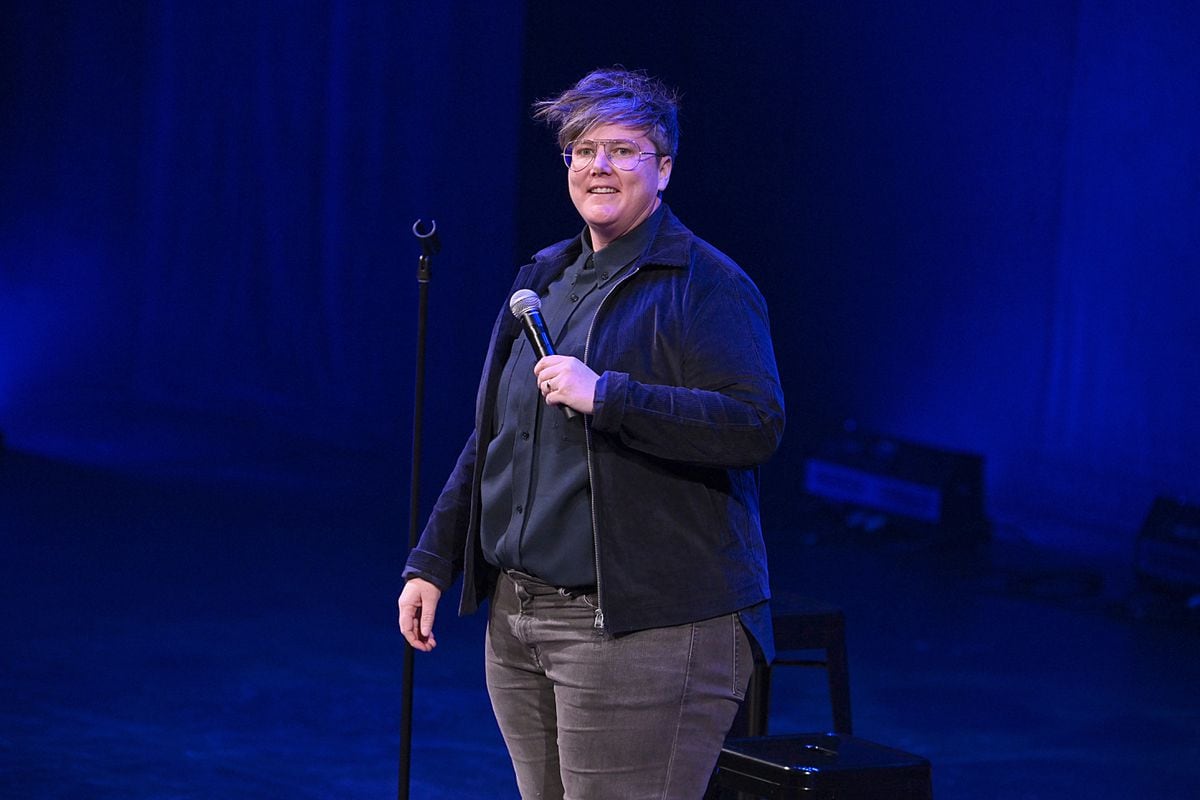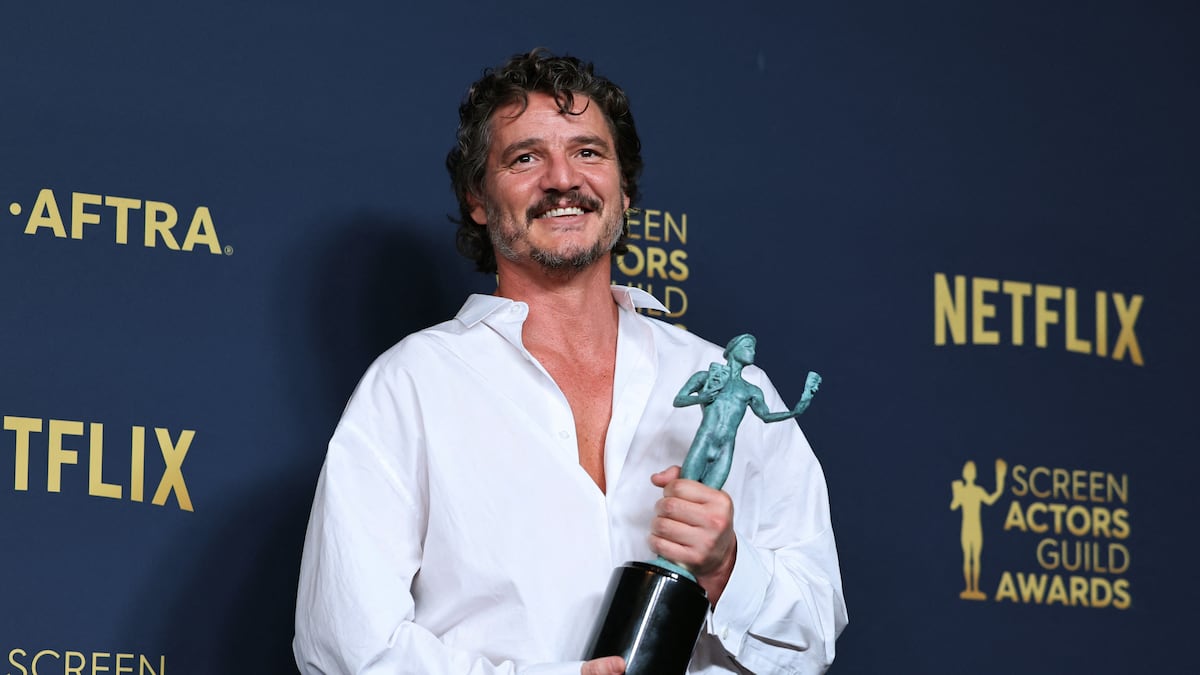Hannah Gadsby has been doing monologues for nearly 15 years, but it was in 2018 when she became a world celebrity when she premiered a special on Netflix entitled
Nanette
,
in which she talked about her life and her lesbianism.
In 2017, the show had won the award for best comedy show at the Edinburgh Comedy Awards, one of the most important awards in the world of humor.
In a very short time,
Nanette
became one of the most praised comedy monologues and also one of the most debated by breaking and turning the conventions of the genre.
Five years after that peak moment, Gadsby now publishes his autobiography,
Ten Steps to Nanette
(Reservoir Books), in which he recounts everything that led him to write this show, in which he announced something that was never true, but that he had a trace of truth: that he was leaving comedy.
In a videoconference interview with EL PAÍS, Gadsby explains that he began to devise the book years before the idea of the monologue existed and that he signed the contract to write it in 2012, although at that time it was a different project: a set of funny anecdotes about their susceptibility to accidents, falls and fractures.
When he started working on it, he realized that the pieces did not fit: "I could not make sense of my life."
Gadsby could not and would not continue to ignore the traumatic events he had experienced, such as his coming out in a hostile environment, a beating as a teenager, or the abuse and rape he suffered.
"All of this made me put that first text aside and not meet any delivery date, to start asking myself about my neurobiology and thinking about my trauma," he says.
The first process ended with a diagnosis of autism and the second with the writing of
Nanette
.
Family photo
As she explains in her book and in the monologue, when she told her mother that she was a lesbian, her response was: “Why are you telling me such a horrible thing?
Let's see, what if I told you... that I'm a murderer?
Gadsby was born in 1978 in Tasmania, an island south of Australia.
Tasmania is she, she writes, “a beautiful place”.
But it was also a difficult place for a lesbian teenager: homosexuality was a crime in this region until 1997.
The comedian explains in this conversation that her book is also "a family portrait", even if it is a portrait full of contradictions, nuances and difficult moments.
Especially one from her mother, whom she describes as an "incredible person."
And she adds: “I wanted to show the pressure of the community.
It is often easy to blame parents for what they do, but they are actually part of society.
And it's hard to raise children when generational changes are getting faster and more complex.
My mother did not understand the world in which I grew up, which was in the process of change.
And that's a difficult situation to raise a daughter."
In his book, he recalls not only the role of pioneers of LGBT rights in Australia, but how toxic the debates about the abolition of those laws were.
The tone of these public debates has not changed and often the same language and almost the same phrases are used in discussions of gender and identity: “They just mean a different victim”.
quit comedy
Gadsby claims that comedy saved his life.
“From the first moment she was surprisingly good on stage.
I was uncomfortable in every other aspect of my life, but I was confident when I acted and that carried over into every other aspect of my life.”
Despite the fact that many apparently simple things were difficult for him, "it was never a problem to talk to hundreds of people at the same time."
But there is a moment in
Nanette
when she threatens to quit comedy.
Both in the monologue and in the book she develops this idea: for years, humor and, above all, the jokes in which she ridiculed herself did not allow her to tell her story well.
For example, the beating she received as a teenager at a bus stop.
Had she explained it as it happened, she would no longer have been “funny”, failing to provide the audience with humor relief after creating all that tension.
In
Nanette
and in the book he returns to this matter and mentions the abuses and violations he suffered, without looking for humor: “I don't want to unite you with laughter or anger.
I just needed my story to be heard, felt and understood.”
This confused many viewers, because the final stretch of the monologue was not funny.
In part, he admits it: "It's not technically comedy," he writes in the book: "I took everything I knew about comedy, tore it apart, and created a monster out of that corpse."
However, it is also comedy, he says in the interview: “I think comedy can be many different things.
And I don't think there's a right way to do it."
For Gadsby, comedy “is a platform for expression, where the final form will depend on what you want your audience to feel and how you want them to experience.
You can make people laugh in so many ways, and there are so many different ways to laugh."
What's more, comedy has to be funny, but it doesn't have to be all about laughter.
Gadbsy compares the state of humor today to that of painting in the early 20th century, when photography made artists rethink realism.
“With social networks you can laugh whenever you want.
It's challenging because it's pushing comedians to go beyond laughter, which is one of the possible outcomes."
back to comedy
Gadsby has never left comedy.
In 2019 he premiered
Douglas
, where he talked about his autism, a topic that he had left out of
Nanette
to prevent prejudice from contaminating what he wanted to explain.
In his opinion, platform specials are changing the way people consume sitcoms, which are now widely seen on screens.
Douglas
herself
premiered on Netflix a year later.
"I was trying to create something that could last multiple viewings," she explains, "with jokes that would get caught or would get better when you rewatch the special."
He does it with what he calls
callforward
: at the beginning of
Douglas
he says everything he is going to tell and how the public is going to react.
He calls it that as opposed to
callbacks
, which occur when a comedian mentions something he's said before and that's already getting a laugh.
What's new now is
Body of Work,
a monologue that is his version of a romantic comedy in which after getting married he focuses on talking about communication.
“It's more like what I did before
Nanette
and that means I tell stories.
And there are also more jokes.
Gadsby explains that
Nanette
's success has given her "the right and the confidence to experiment, as well as an audience that looks forward to it."
What he likes the most and what he takes most seriously are his performances in theaters and theaters: “I'm not worried about Netflix.
Netflix is just money.
But I am interested in the people who come to see me.
When I was in my twenties, I couldn't have afforded a ticket to my shows.
So when I write and act, I think of this imaginary person who can't always see what he wants when he wants."
50% off
Exclusive content for subscribers
read without limits
subscribe
I'm already a subscriber






/cloudfront-eu-central-1.images.arcpublishing.com/prisa/HZJYHXEJRJG4REXZG5VIWEJZ3Y.jpg)
